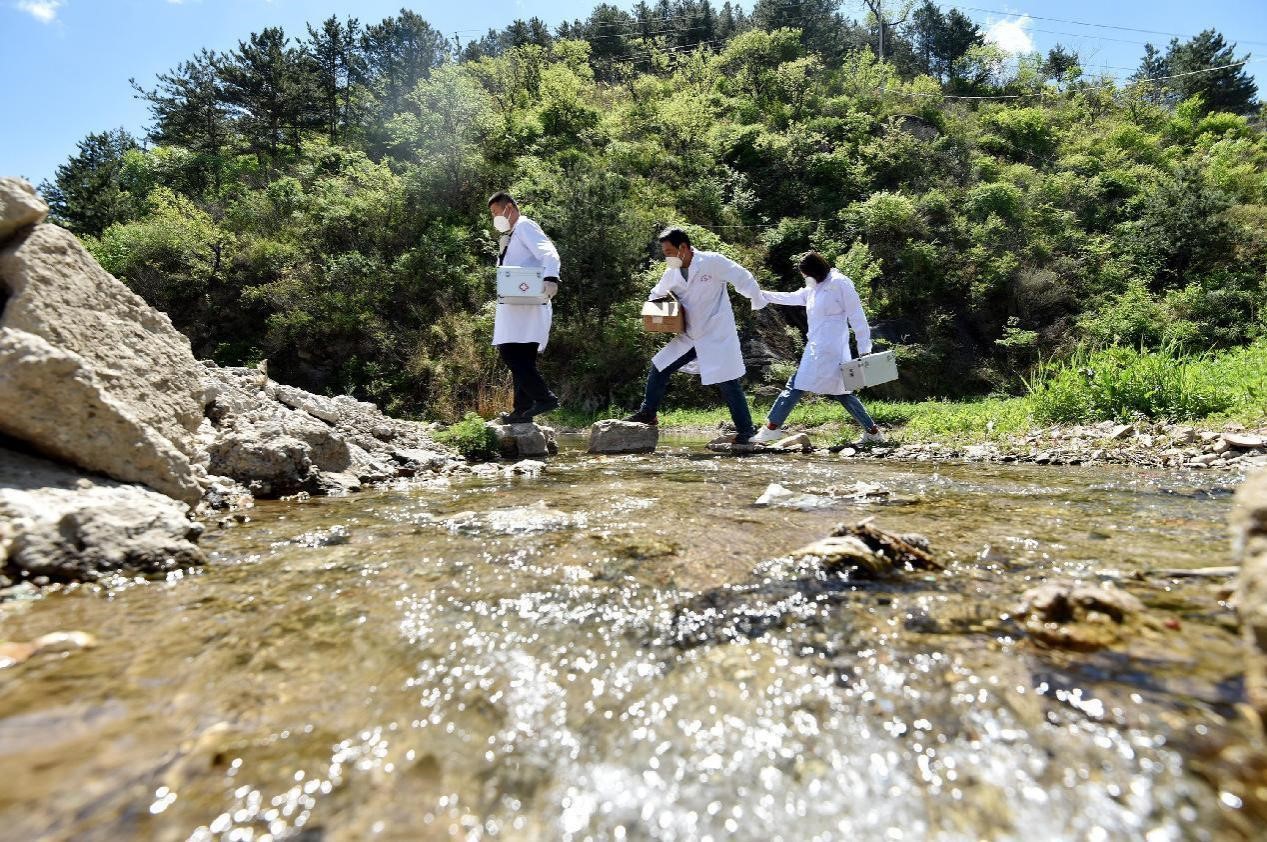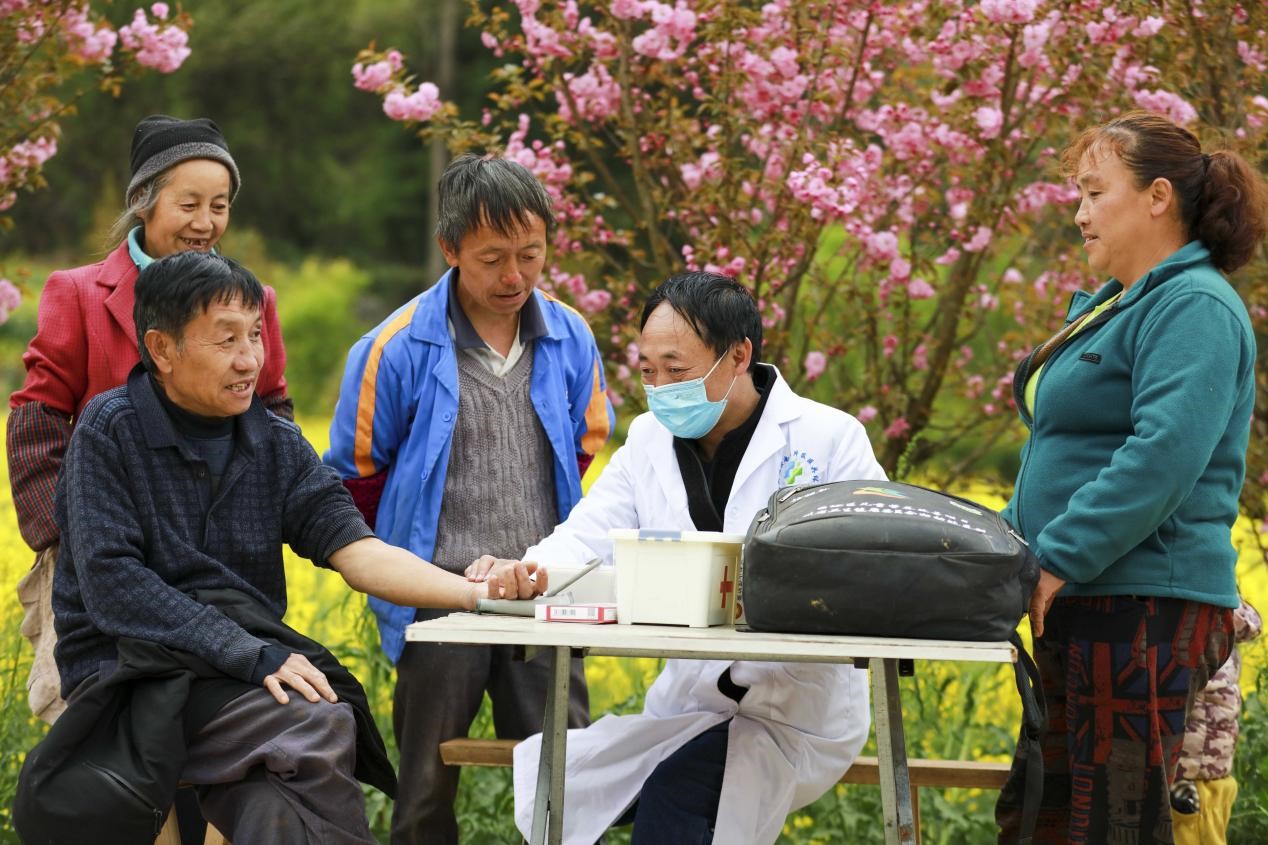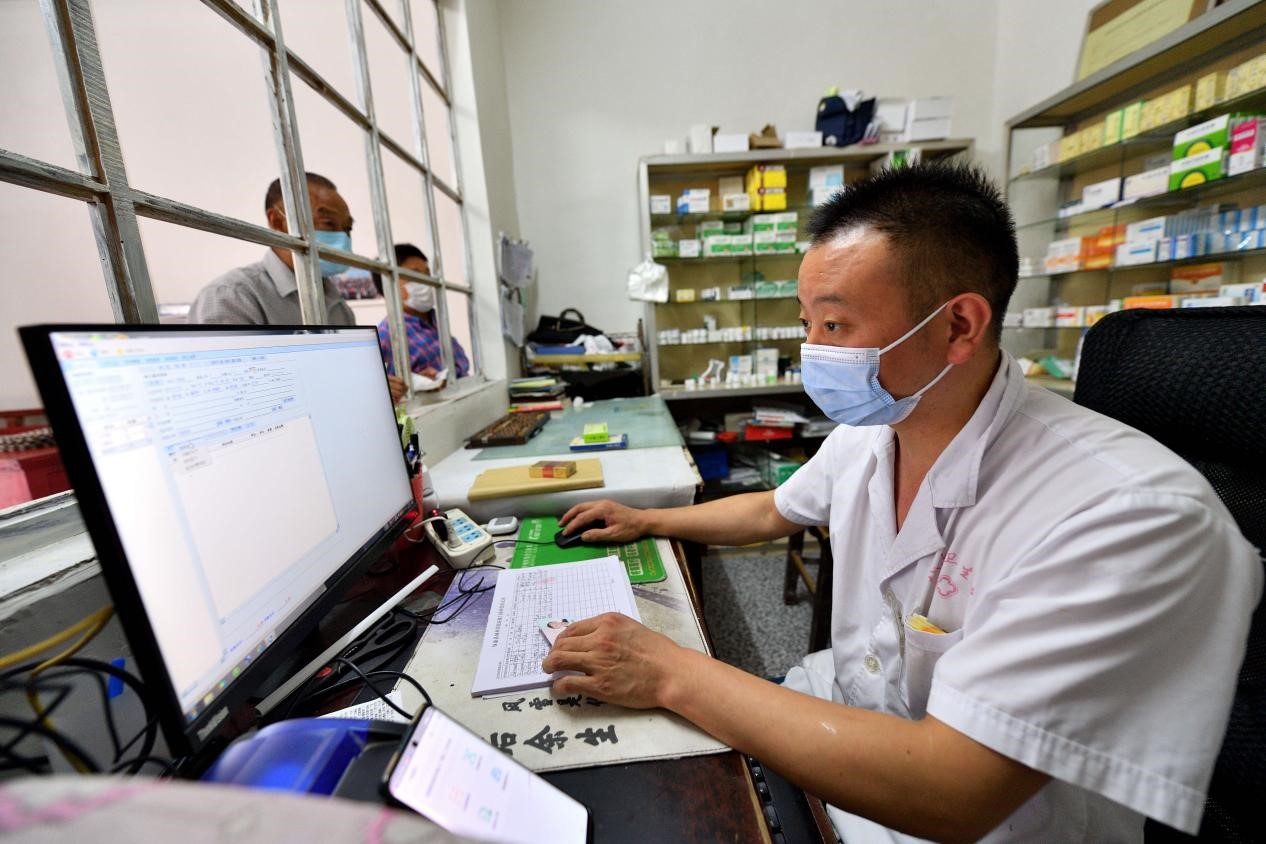Intelligent equipment, systems upgrade village clinics across China
Intelligent systems and equipment are lending a big hand to medical agencies and doctors in rural China, making medical services more convenient and accessible.
In a clinic in Zibianwangji village, Daxingdi township, Lushui city, southwest China's Yunnan province, various types of medical devices are assisting doctor Yang Wenhua in diagnosis and treatment, such as a blood pressure monitor, a glucometer, and a traditional Chinese medicine massager.

Doctors of a clinic in Mangshikou township, Zhulu county, Zhangjiakou, north China's Hebei province pay home visits, May 14, 2022. (People's Daily Online/Chen Xiaodong)
“Since a ‘smart village doctor’ system was launched, we have obtained more assistive medical devices and therapy methods. There are more villagers coming to the clinic nowadays,” said Yang, while recording, on a specially designed application on his phone, the information of a villager who came to the clinic for massage therapy.
“The system has put an end to the history when rural doctors had to rely on echometers, thermometer, and their personal experiences to make diagnoses,” Yang told People’s Daily.
Recently, a “smart assistant” system was launched at township- and village-level medical agencies in Hengnan county, central China’s Hunan province. Based on big data and AI technologies, the system collects information of massive cases, as well as the latest prescription requirements, thus providing references to the doctors from these agencies when they make diagnoses. If there is a discrepancy between doctors’ diagnoses and those made by the system, doctors can seek for advices from higher medical agencies.
“Such high-tech assistance was totally beyond imagination in the past,” said a rural doctor with more than 20 years of clinical experience.
In the past, rural doctors across China had to pay home visits to their patients carrying heavy medical kits. Nowadays, a number of villages have access to modern medical devices.

Photo taken on March 22, 2022 shows villagers going to a free clinic given by doctor He Wei, who works at a clinic in Xiaoshuijing village, Yuduo township, Qianxi, southwest China's Guizhou province. (People's Daily Online/Zhou Xunchao)
For instance, AI-enabled patient callback systems can automatically call chronic patients and record their conditions over the phone; a 5G-enabled intelligent diagnosis and therapy machine can perform 13 types of examinations and give remote diagnoses.
The application of advanced medical technologies in the countryside helps improve the efficiency of diagnosis and treatment, and makes medical services more professional. Besides, it also reduces clerical work for doctors and enables them to invest more energy in diagnosis and treatment.
In the past, some villagers were reluctant to go to the doctor due to the complicated healthcare reimbursement procedures. Today, these procedures have become much easier thanks to the wide application of electronic medical records.
In Baise, south China’s Guangxi Zhuang autonomous region, intelligent settlement terminals have been installed at local medical agencies, through which the villagers can go through reimbursement formalities. Patients in rural Baise have benefited significantly from the terminals, which enable them to receive treatment for minor ailments “at their doorsteps.”
Rural doctors comprise a major part of the well-trained professionals in the countryside. Some rural areas are still facing a lack of doctors and substandard medical services. Some rural doctors said that sometimes, due to a lack of experience, they had to leave tricky cases to higher agencies.
Today, thanks to the close medical consortiums established across the country, rural doctors have more opportunities to receive training and pursue further studies at higher agencies, which makes them more skilled in dealing with common diseases that were once prone to missed diagnoses and misdiagnoses.

Doctor Wu Yun of a clinic in Tumen village, Chengguan township, Baokang county, Xiangyang, central China's Hubei province records information of villagers coming to the clinic to get medicines, Aug. 15, 2021. (People's Daily Online/Yang Tao)
Statistics indicate that as of the end of 2020, 609,000 clinics had been set up in 509,000 administrative villages across China, with each clinic having 2.37 medical workers on average.
In 2020, county-level hospitals in China received 1.16 billion visits, and the number was 1.1 billion for those at the township level. Village clinics across the country were visited 1.43 billion times in the same year, or 2,349 times for each one of them.
At present, China has more than 700,000 doctors working at village clinics to ensure the health of rural residents.
Photos
Related Stories
- Rural areas reap benefits of vitalization
- Ceramic art helps rural vitalization in central China’s Henan province
- “Rural resources banks” in E China’s Anhui turn ecological resources into valuable assets
- New media helps promote rural revitalization projects in Guizhou
- China's rural vitalization breathes new life into agriculture, villages
- Residents of Hezhe ethnic group living in NE China’s Heilongjiang embrace better life through rural vitalization drive
- New generation farmers active in China’s construction of digital villages
- Village in north China's Hebei thrives on rose industry
- China to further reinforce legal guarantee for rural vitalization
- Village in N China's Shanxi thrives on booming pear industry
Copyright © 2022 People's Daily Online. All Rights Reserved.









